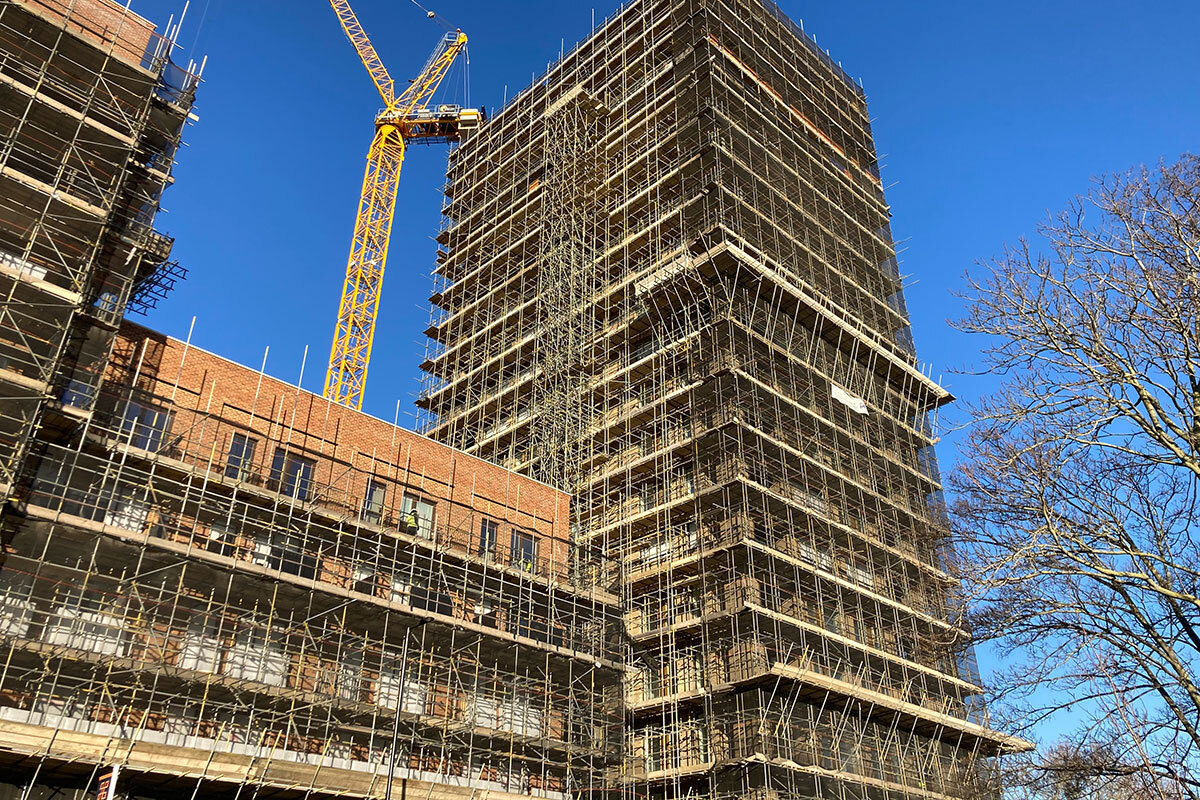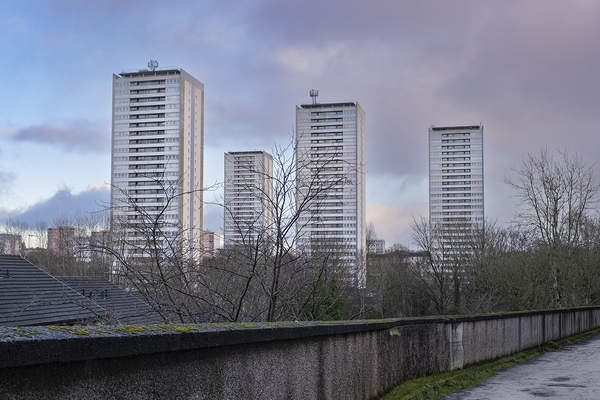You are viewing 1 of your 1 free articles
Council tenant wins High Court battle against misuse of planning law on south London estate
A secure council tenant and campaigner who has been fighting against the demolition of an estate in south London has won her claim at the High Court.
Aysen Dennis won her claim against Southwark Council and Notting Hill Genesis’ (NHG) plans to regenerate the Aylesbury Estate, following a judicial review this week.
In 2015, Southwark Council granted NHG planning permission to demolish and rebuild the 1970s estate according to a new masterplan developed with the community.
But Ms Dennis argued that a later amendment to the planning permission had made it much easier for NHG to differ from the original masterplan.
Using the amendment, which was approved by Southwark Council in March 2023, the association had made a “drop-in” application on the site, which she said went far beyond the original plans by increasing the height of tower blocks overlooking Burgess Park.
By approving the amendment, she claimed that Southwark gave the association further “extensive powers” beyond the rights originally granted, allowing it to “mix and match” new planning permissions across the estate.
The blocks, the highest of which would reach 26 storeys, would provide 614 homes, of which 50% would be affordable. The council argued that its new local plan required the scheme to deliver increased levels of housing.
Large-scale estate regenerations often unfold in phases from outline planning permissions over time, and campaigners argue that developers can use these “drop-in” applications to deviate from what was promised to residents.
The judge, Justice Holgate, said that Southwark and NHG’s submissions “lacked coherence”. He agreed that the original permission was not severable and that the decision to amend the planning permission must be quashed.
Ms Dennis, who has lived at Aylesbury for more than 30 years, said that Southwark Council was allowing NHG “to do what they want through the back door”.
She added: “We demand social housing, not social cleansing.”
Of the phases of the Aylesbury regeneration that are either completed or on site, 804 – or 56% of the total – will be for social rent.
This latest phase is one in a long history of redevelopment on the estate and would see the demolition of five buildings, including Ms Dennis’ home, which she has previously opened for an anti-gentrification exhibition.
Southwark Council signed a £1.5bn deal with NHG in 2014 to oversee the vast regeneration project over an 18-year timespan.
The Aylesbury Estate was also the site of a long battle between local leaseholders and the council, which was eventually granted compulsory purchase powers to buy properties by then-housing secretary James Brokenshire in 2018.
The Public Interest Law Centre, which represented Ms Dennis, said: “This judgement should serve as a warning to developers who disregard historical masterplans and the promises they make to communities in the process of gentrification.”
NHG said: “While we are disappointed by the court’s decision to uphold this judicial review in relation to the legal technical matter in question, the outline permission for the Aylesbury regeneration remains in place, as does our commitment to delivering the high-quality affordable housing and spaces so needed in this area.”
The landlord said it was considering how to respond to the decision that will delay the construction of new homes.
It added: “We are very pleased that some tenants, including the complainant in this case, have already been able to move into the quality, safe, energy-efficient homes being built here, but it is disappointing that others will now be deprived of that same opportunity for the foreseeable future.
“The existing estate remains in desperate need of regeneration so individuals and families can enjoy homes fit for modern life, and we will carry on our vital work so we can make that happen as quickly as possible and improve the lives of thousands of people on the estate.”
Helen Dennis, cabinet member for new homes and sustainable development at Southwark Council, said the decision will be reviewed as she believes the case “rested on a highly technical planning argument that previously had no precedence in law”.
Ms Dennis added: “It is disappointing that this decision will mean delays to building new homes for residents, but our plans to replace the original homes that were badly built in the sixties are still in train.
“We want to reassure Aylesbury residents that we will continue working with them to build new homes for them to move to.”
Sign up for our development and finance newsletter
Already have an account? Click here to manage your newsletters












